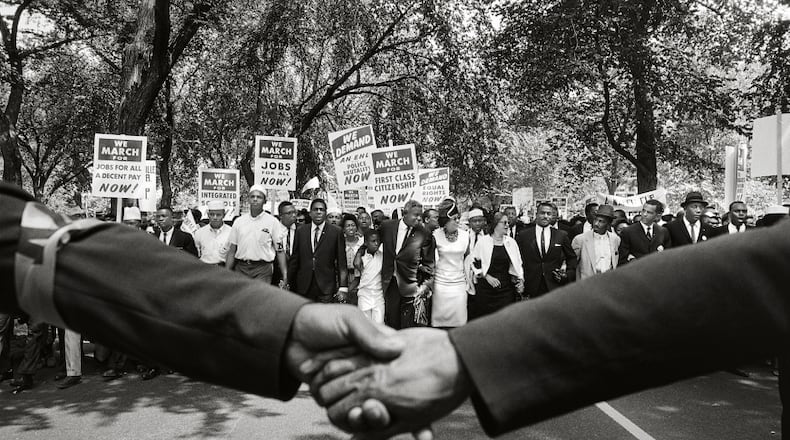“I have a dream that one day on the red hills of Georgia, the sons of former slaves and the sons of former slave owners will be able to sit down together at the table of brotherhood.”
When he spoke those stirring words, 60 years ago this Monday, standing on the steps of the Lincoln Memorial during the March on Washington in 1963, Rev. Martin Luther King Jr. could never have imagined some of the controversies that embroil us today: teaching that slavery had some benefit for those enslaved, fighting over a music video that imagines Black protesters facing the wrath of small town rednecks, and some “woke” ideologues insisting that all white people are racists and must admit it.
The origin of the quote is a story worth retelling. Ray Jenkins was the college roommate of my first boss at The Atlanta Constitution, Jim Minter, who recounted it to me. Jenkins was just 29 years old in 1959 when he became city editor of The Alabama Journal in Montgomery. He would drop in occasionally at the Dexter Avenue Baptist Church to interview its pastor, Dr. King.
Credit: contributed
Credit: contributed
On one visit, Jenkins mentioned having ancestors who had been slaveowners in northern Georgia. He did not describe how he felt, but my guess is he felt chagrin – not guilt or shame, just chagrin. In any case, he recalled King responding, “And yet you and I can have this respectful talk – you, the son of slave owners, and I, the son of slaves who once lived together in the red hills of Georgia. Isn’t that reassuring?”
As they parted, King asked if he could do anything for Jenkins, who replied that he would be honored if King included the thought in a speech one day. Four years later, Jenkins was listening on the radio when he heard the words. He considered it the high point of his career, greater than his Pulitzer Prize.
What does the story tell us?
First, I think schools can teach the history of slavery in the United States without making white children feel shame or guilt. If they are chagrined that their nation once enslaved Black people, so be it. Dr. King did not embarrass Jenkins for having ancestors who owned slaves; he invited him to sit at his table. Trying to soften the sting by inventing “positive” points about slavery, meanwhile, is simply infuriating to any sensible person of any race. Ray Jenkins, a white man of his time and place, knew better than to try excusing his slave-owning ancestors and we should know better today.
I’m not sure what King and Jenkins would have made of the strange pairing of recent news stories about the country music video that invites Black Lives Matter protesters to “try that in a small town,” suggesting a violent response, versus news that the city of New York has agreed to pay $13 million in damages to protesters improperly arrested in the aftermath of the murder of George Floyd. But my guess is King and Jenkins would have despaired over the cultural divisions that have widened in America in recent years.
On the other side of the ledger, I suspect King and Jenkins would have rejected the insistence of some on the Left that white people are by definition racists – the core argument of “White Fragility,” the influential book by Robin DiAngelo in which she writes, “I know that because I was socialized as white in a racism-based society, I have a racist worldview, deep racial bias, racist patterns and investments in a racist system that has elevated me.”
When I recently suggested to a young Black acquaintance that calling someone a racist often ends the conversation before it begins, and further that extreme antiracist orthodoxy may even give white people an excuse for turning their backs on the hard work of reaching higher ground in race relations, she … well, she called me a racist.
The “table of brotherhood” is a pretty straightforward concept, it seems to me, six decades on. It forgives the sins of the fathers and asks us not to sin. It asks that we sit together.
This piece is adapted from an essay in Frederick Allen’s new book “Reckoning With Race: An Unfinished Journey.” Allen was a reporter and political columnist with The Atlanta Journal-Constitution from 1972 to 1987.
About the Author
Keep Reading
The Latest
Featured




